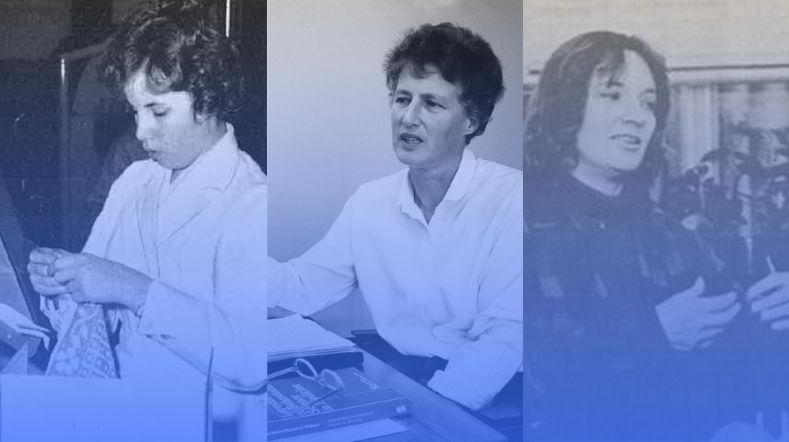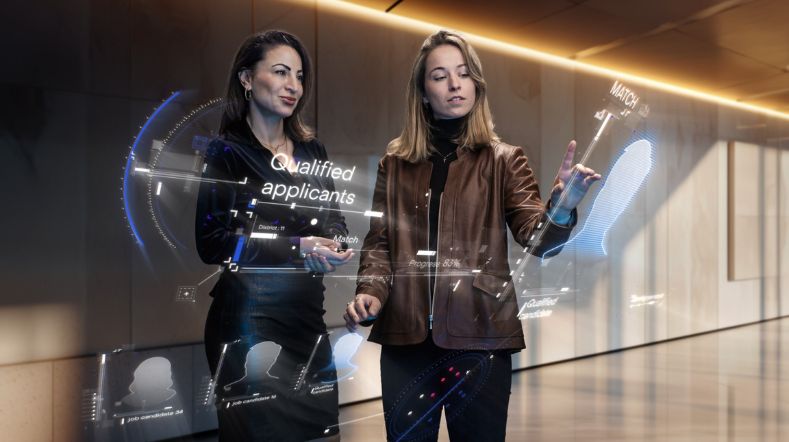
TNO's view of 2030: Medicines developed 2 years faster
To improve quality of life, prolong lives, and reduce healthcare costs, medicines need to be available faster and more cheaply. ‘Medicines developed 2 years faster’ is one of the ambitious goals set by TNO. We are helping by accelerating the drug development process by two years before the end of this decade. Together with our partners, we are bringing that goal closer using microtracer technology and by furthering process innovations. Together, we’re contributing to the life of tomorrow.
In this article, toxicologists Wouter Vaes and Jennifer McCormack-Venhorst talk about their collaboration with the pharmaceutical industry.
Innovative technology speeds up development process
The development of a potential drug, from laboratory to patient, takes about 13 years and costs between $1.3 and $2.5 billion. This process can be accelerated by using innovative technology. This makes it possible to develop drugs in a more cost-effective way and make them available to patients sooner. TNO focuses on microtracing in combination with accelerator mass spectrometry (AMS). Research with AMS can speed up the development process of new drugs by up to two years.
TNO's goals for 2030
With goals for 2030, TNO contributes to societal issues and the earning capacity of the Netherlands.
Reducing failure probability and preventing delays
The probability of a drug candidate failing during costly clinical trials is around 90%. Causes are a lack of efficacy (60%) and harmful side effects (40%). Due to their high failure rate, a lot of time and money is spent on drug candidates that never reach the market. As a result, it takes longer for good drugs to become available to patients, even though they often make a substantial contribution to reducing overall healthcare costs. Therefore, reducing the failure rate and preventing delays in the development of new drugs is of great importance.
Safety testing of drugs already in the first clinical phase
To ensure the safety of new drugs, pharmaceutical companies must conduct research to determine whether the drug candidate is converted to (toxic) degradants in humans. This research is now often done in the last and most expensive phase of clinical trials. Using microtracing in combination with AMS, this safety research can be done as early as during the first clinical phase. This prevents high-safety-risk drug candidates from advancing to the large-scale, and much more expensive, clinical trials. Moreover, early information on the safety of a drug in humans can be used to make animal studies more efficient and, in some cases, even reduce them to zero.

‘Technological developments can help reduce development times safely.’
Faster testing due to lower radioactive dose of active ingredients
‘For more complex diseases, it has proved difficult to get a drug on the market over the past decades’, explains Wouter Vaes. ‘On the one hand, we strive for the highest possible safety; on the other, extensive regulations lead to long development times. Technological developments can help reduce development times safely. The AMS is a huge device that actually performs very simple measurements. By using AMS, we can use a much lower dose of a radioactive version of the active components. And if you can administer a lower radioactive dose, you can conduct the experiments required for drug approval a few years earlier. As a result, the drug development process is shortened.’
Kill early, kill cheap
The difficulty of drug development lies not in synthesising an active ingredient. The tricky part is guaranteeing that a drug is effective while not being toxic and exhibiting the right kinetic behaviour in the body. TNO is assisting the pharmaceutical industry using the ‘kill early, kill cheap’ principle: the sooner you can eliminate the malfunctioning molecules, the better. While Wouter works on kinetics and metabolism, his colleague Jennifer McCormack-Venhorst is on the front end of the process. From research to patient, her experience in the pharmaceutical industry has given her a good overview, which she can use to ensure dead-end drug targets are eliminated as soon as possible.

‘Because there are major differences between humans, animals, and cell systems, we create models that mimic humans as closely as possible.’
Testing with much lower doses
Jennifer: ‘Drug development has become highly technical since you cannot just test a high dose of a drug on humans. First, you look at its efficacy and whether it generates toxicity in cell systems. Then, you can start testing both in animals. Only when that goes well, do we make the medical-ethical consideration of testing on humans. Because there are major differences between humans, animals, and cell systems, we create models that mimic humans as closely as possible. Within this entire process, AI and machine learning are increasingly being used to make predictions. In addition, new technologies, including AMS, allow us to test (on humans) at much lower doses. The combination of all this means that a drug could reach the market years faster.’
The future: Improving the effectiveness of drugs
What does the future look like? Some pharmaceutical companies have upended their research pathways to quickly eliminate dead ends and test on humans much earlier. TNO is committed to moving the entire industry in that direction. Wouter: ‘We want to start using AMS to improve drug efficacy. The aim is to gain insight into how a drug behaves ‘downstream’, that is to say, to better understand which steps to take and which adjustments to make during the development process to make the drug work optimally.’
Become a time setter at TNO
Do you want to work on innovations that make a real future? Then become a time setter like all TNO employees and make your mark on our time. This is our time.
Get inspired
Time setter story: Jayeeta Sengupta


International Womens day 2025


IBDigital Project Starts at ECCO Conference in Berlin


Investor Pitch at Invest in Africa Summit 2025
TNO Announces the launch of ObjectivEye



